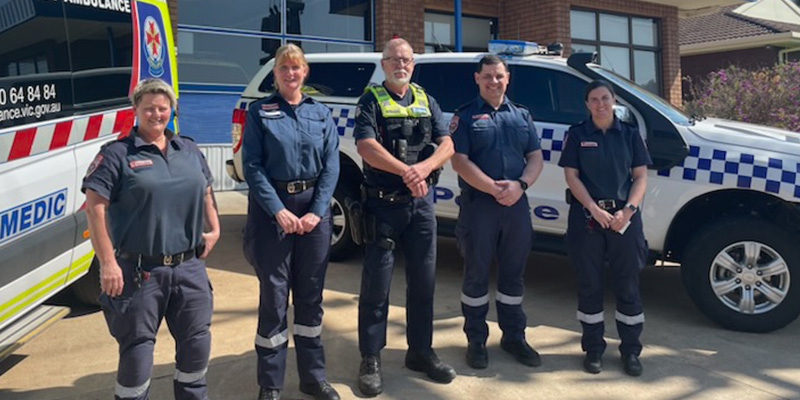Mr Huxtable was on shift on 19 May when he had intense and persistent pain in his chest and right arm.
"It felt like an elephant was sitting on my chest," he said.
Despite not having previous heart issues, Mr Huxtable knew he was unwell and called his partner, a nurse of more than 20 years, who confirmed he needed medical help.
At hospital, an electrocardiogram (ECG) showed Mr Huxtable was having a heart attack and the nurses immediately called Ambulance Victoria (AV) to transport him for treatment.
After becoming unresponsive in the ambulance and requiring the assistance of four paramedics and a mobile intensive care ambulance (MICA) intern, an air ambulance helicopter transported Mr Huxtable to Bendigo Health where he immediately had surgery.
Three stents and six weeks of rehab later, Mr Huxtable returned to work - a milestone he said wouldn't have been possible without the treatment he received.
"I was told I had a 'widowmaker heart attack' that has a 12 per cent survival rate," he said.
"I am very grateful and appreciative to the team at the hospital and the paramedics who helped diagnose and treat my heart attack. They're the reason I'm still here.
"I am very lucky because I got on to the heart attack quickly - that's why people need to call Triple Zero (000) early when they have symptoms."
AV MICA intern Craig Stack said it is common for a heart attack to come on suddenly.
"Anyone in the community who has chest pain should dial Triple Zero (000), and not drive themselves to hospital," Mr Stack said.
"The warning signs can vary from person to person and can include chest pain, back pain, jaw pain, neck pain, nausea and sweating.
"Research shows the sooner dangerous clots can be treated, the better outcome for the patient."







